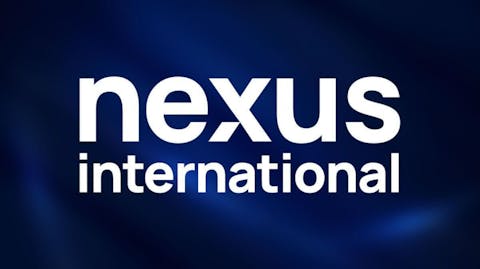
Nexus International has announced $546 million in revenue for the first half of 2025, a 110% increase over the same period last year. The company attributes a significant portion of this growth to its early licensing and operational deployment in Brazil, where the newly regulated iGaming market has quickly become central to the company’s global strategy.
Brazil’s decision to formalize its iGaming framework in early 2025 opened the door to regulated operations across sports betting and online gaming. Nexus was among the first international companies to secure a license under the new regime, positioning it to move quickly while competitors navigated the licensing process and regulatory adjustments.
“Our early entry into Brazil wasn’t speculative. It was the result of groundwork laid well before regulation took effect,” said Gurhan Kiziloz, founder and CEO of Nexus. “We invested early in compliance, localization, and infrastructure because we saw the regulatory shift coming. That readiness translated directly into performance.”
The company’s lead platform in Brazil, Megaposta, saw a substantial increase in user activity, retention, and transaction volume during the first two quarters. Nexus reports that Brazil now represents a significant portion of its total H1 revenue and continues to lead in user engagement metrics across its portfolio.
Brazil’s regulatory requirements include rigorous Know Your Customer (KYC) protocols, data security measures, and real-time reporting to local authorities. Operators must also comply with regulations on player protection and responsible gaming. Nexus’s early adjustment to these standards gave it a functional advantage as many competitors faced onboarding delays and compliance bottlenecks.
Kiziloz emphasized that regulatory compliance was treated as a core operational component, not an afterthought. “We’ve built our systems to adapt in real time to local frameworks,” he said. “In Brazil, that meant aligning early with national standards, investing in local expertise, and ensuring that our platforms could scale securely.”
The broader Latin American region is now a growth focus for Nexus. However, Brazil remains the company’s primary engine in the region, with localized operations, dedicated customer support, and tailored product offerings. The recent opening of Nexus’s São Paulo office underscores this commitment, with the location set to house regulatory, marketing, and technical teams.
The early success in Brazil is part of a larger strategy that prioritizes regulated markets with high mobile penetration and youthful user bases. Nexus’s other core brands, Spartans.com and Lanistar, have also begun to scale in Brazil, each adapted to local payment systems, language preferences, and content regulations.
Spartans.com, a crypto-native platform, has offered Brazilian users mobile-first interfaces and flexible transaction options, aligning with the country’s high mobile engagement rates. Lanistar, now operating as a licensed casino and betting platform, has focused on digital-native users seeking frictionless onboarding and fast withdrawals.
Industry analysts have noted that early compliance in newly regulated markets often translates into durable market share, especially when user experience is not disrupted by post-launch adjustments. Nexus’s Brazil strategy aligns with this pattern, with user retention figures and transaction frequency indicating sustained engagement.
From a revenue standpoint, the $546 million posted in H1 has already surpassed the company’s full-year 2024 figure of $400 million. While Nexus’s internal target remains $1.54 billion for the full year, the company maintains that the current trajectory is in line with expectations, particularly given the ongoing rollout of new markets and regulatory processes.
Kiziloz noted that early licensing is not a guarantee of long-term success but he sees it as a necessary foundation. “Markets like Brazil reward readiness,” he said. “We’re not claiming victory. We’re just saying that preparation gave us a fair starting point, and now it’s about execution.”
The second half of 2025 will see Nexus continue its expansion across Latin America, with additional licensing applications underway in neighboring jurisdictions. The company is also investing in expanded data infrastructure, customer support capabilities, and compliance systems to support long-term growth in the region.
As other global operators continue to enter Brazil and adjust to its regulatory environment, Nexus believes that early integration and operational speed will remain key competitive differentiators.
Disclosure: Insider Monkey doesn’t recommend purchase of any securities/currencies. Insider Monkey received compensation to publish this article. We don’t guarantee the accuracy of the statements made in this article. Insider Monkey and its principals are not affiliated with the client and have no ownership in the client’s business. Insider Monkey doesn’t recommend the purchase/sale of any securities, cryptocurrencies, or ICOs. Please get in touch with a financial professional before making any financial decisions. You understand that Insider Monkey doesn’t accept any responsibility and you will be using the information presented here at your own risk. You acknowledge that this disclaimer is a simplified version of our Terms of Use, and by accessing or using our site, you agree to be bound by all of its terms and conditions. If at any time you find these terms and conditions unacceptable, you must immediately leave the Site and cease all use of the Site.





